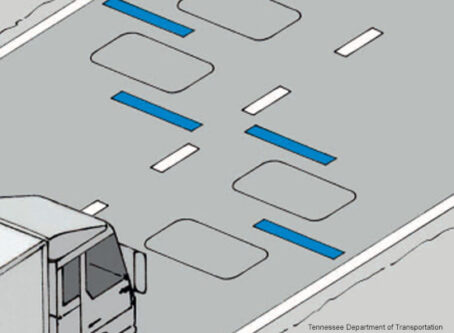Three states press forward to quash ticket quotas
Legislators in states around the country are pursuing action to end to ticket quotas and police going on ticket-writing sprees.
Communities all over the map are able to raise much money from different types of fines. In certain locales, fines account for more than half of local revenues. These municipalities are known for being speed traps.
The National Motorists Association says that “a speed trap exists wherever traffic enforcement is focused on extracting revenue from drivers instead of improving safety.”
According to figures compiled by Governing magazine, there are about 600 jurisdictions around the country where fines and forfeitures account for more than 10% of general fund revenues. There are 80 where the share exceeded 50%.
States with the most municipalities exceeding the 50% threshold are Louisiana, Oklahoma, Georgia, and Texas.
About 20 states have acted to discourage practices that pressure law enforcement officers to write tickets.
Some states attempt to counter the dependence on fines to cover local budget gaps by setting caps on revenue that localities can generate from fines. Nevertheless, some communities are able to work around the rules by routing the money to separate funds.
Washington
One bill nearing passage at the Washington statehouse would address concern about policing for profit.
In Washington state, about two-thirds of traffic ticket revenue stays with the district issuing the citation. The rest goes to the state.
The House Labor and Workplace Standards Committee is reviewing a bill to prohibit the consideration of the number of citations an officer issues, or the amount of penalties assessed, in any performance review, evaluation, rating, assessment, salary, promotion, or assignment.
Sen. Jeff Holy, R-Cheney, said the protections in his bill against policing for profit are “long overdue.”
The retired Spokane police officer said his bill also would address a public perception that is damaging to law enforcement.
“Many people believe that some law enforcement agencies order officers to issue tickets, which in effect creates a ticket quota system,” Holy said. “This is damaging to the integrity of law enforcement as a whole in Washington.”
An official with the Washington State Patrol spoke at a recent committee hearing on the bill. He said traffic enforcement is part of the job, and the number of traffic infractions issued is used in evaluations.
Others say that prohibiting supervisors to evaluate officers on their levels of self-initiated activity would have fiscal and public safety implications.
Holy said “there are a million different ways to assess officer performance other than issuance of citations.”
If approved by the committee, SB6316 would head to the House floor. The Senate previously approved the bill by unanimous consent.
Tennessee
The Volunteer State already prohibits the practice of ticket quotas. Despite the proactive step taken by the state Legislature, some say there is “no teeth” to the law.
The Senate has voted unanimously to advance a bill to put some bite into the rule.
Sponsored by Sen. Kerry Roberts, R-Springfield, SB2458 would specify a penalty.
Roberts said the need for including a punishment for breaking the rule is highlighted by recent illegal activity in one community north of Nashville.
Ridgetop, Tenn., is intersected by U.S. 41 in Davidson and Robertson counties.
Roberts said during committee discussion on the bill the town’s police department wrote about $250,000 in traffic tickets. Roberts said a city that size should be more in line with $30,000 in tickets.
Police said elected officials were responsible for the practice.
“The law had been broken, but there was no consequence so nothing could be done about it,” Roberts testified. “In so doing, we basically told every municipality in Tennessee to ‘go ahead and have your ticket quota, because even though it is against the law there’s not a thing in the world anyone’s going to do about it.’”
His bill adds a consequence for ticket quotas. Specifically, public officials directing law enforcement to issue a certain number of tickets would be subject to a $500 fine.
SB2458 has moved to the House for further consideration.
Oklahoma
The Oklahoma Senate voted 35-11 on Tuesday to advance a bill targeting ticket quotas.
State law prohibits cities and towns from generating more than half of their revenue through traffic fines.
Sen. Nathan Dahm, R-Broken Arrow, is behind a bill to go further to combat ticket quota systems.
His bill would outlaw local governments and police departments from requiring officers to issue a certain number of citations within a specific period of time. Additionally, agencies would be prohibited from evaluating personnel based on the number of tickets written or arrests made.
Violators would face removal from their position.
“It’s an unspoken rule that some jurisdictions may emphasize issuing citations at different times to try and generate more revenue,” Dahm stated. “Our law enforcement officers, justices and judges should not be pressured by their employers to write additional tickets or collect revenue to keep their jobs.”
SB1264 next heads to the House.
More state trends
Keith Goble, state legislative editor for Land Line Media, keeps track of many trends among statehouses across the U.S. Here are some other articles by him.









